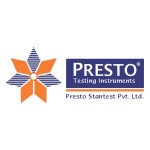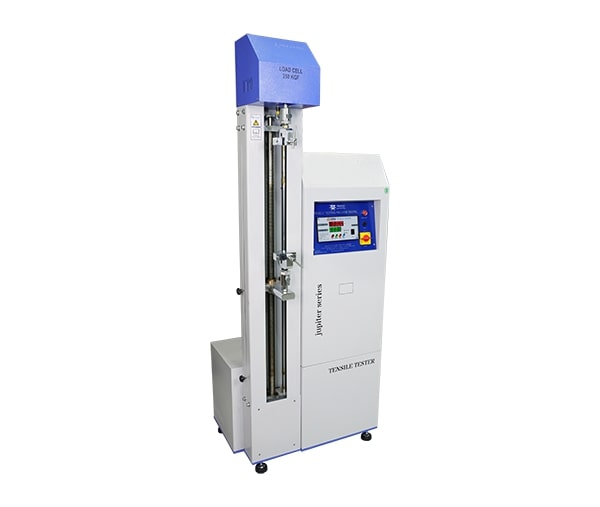A tensile strength tester is a critical tool in quality control and product development, helping manufacturers and engineers understand the strength and durability of materials. Also known as a tensile test machine, this equipment measures a material’s response when subjected to tension, providing essential data on its ultimate tensile strength, yield strength, and elongation. This guide will cover how a tensile strength tester works, key features to look for, and factors that affect its price.
What is a Tensile Strength Tester?
A tensile strength tester is a machine designed to apply a controlled pulling force to a material sample until it fractures. This test reveals essential characteristics of the material, such as its strength, flexibility, and breaking point. These insights are crucial across industries, from construction and aerospace to packaging and textiles, as they ensure that materials meet durability and performance standards.
Key Components of a Tensile Test Machine
- Load Cell: The load cell measures the amount of force applied to the sample, allowing for precise testing. Different load cells may be needed depending on the strength of the material.
- Grips or Clamps: These hold the material sample in place during the test, ensuring accurate results. Different types of grips are used for different materials (e.g., flat, round, or sheet-like samples).
- Crosshead: This moves vertically, applying tensile force to the sample. The speed and movement of the crosshead can be adjusted based on test requirements.
- Data Acquisition System: Modern tensile test machines have software that records and analyzes the data collected, allowing for in-depth analysis of material properties.
Applications of a Tensile Strength Tester
Tensile strength testers are essential in various industries due to their ability to test a wide range of materials, including:
- Metals: The automotive and aerospace industries use tensile strength testers to ensure that metal parts can withstand stress and strain during use.
- Plastics and Polymers: For packaging and consumer goods, tensile testing helps assess material flexibility, tear resistance, and overall durability.
- Textiles: In the textile industry, tensile testing evaluates fabric stretch and tear resistance, ensuring products meet quality and durability standards.
- Construction Materials: Testing construction materials like concrete or steel verifies their load-bearing capabilities and suitability for infrastructure projects.
Factors to Consider When Choosing a Tensile Strength Tester
When selecting a tensile strength tester, consider these key factors:
- Load Capacity: The load capacity of the machine should align with the strength requirements of the materials you intend to test. Machines with capacities ranging from a few Newtons to several tons are available, depending on the application.
- Type of Test: Some machines offer various testing capabilities, such as compression, bending, or flexure testing. Choose a tester based on the specific types of tests you’ll perform.
- Accuracy and Precision: High-quality load cells and precision engineering ensure accurate and consistent results. Look for a machine with a good repeatability specification, as it will provide more reliable data.
- Software and Data Analysis: Advanced tensile test machines come with software that helps capture and analyze test data in real time, making it easier to interpret results.
- Ease of Use and Maintenance: Consider machines that are user-friendly and require minimal maintenance. Intuitive controls and software save time and reduce training requirements for operators.
Tensile Strength Tester Price Factors
The price of a tensile strength tester can vary significantly depending on several factors:
- Load Capacity: High-capacity machines generally cost more, as they’re built to withstand greater forces.
- Precision and Accuracy: Machines with highly precise load cells and data analysis software are typically more expensive.
- Customization and Features: Advanced models with additional testing modes, digital interfaces, and automated data collection are on the higher end of the price spectrum.
- Brand and Manufacturer: Established tensile strength tester manufacturers often charge more due to their reputation for quality and durability.
Finding a Reliable Tensile Strength Tester Manufacturer
When investing in a tensile strength tester, choosing a reputable manufacturer is essential. Leading manufacturers provide reliable equipment and often offer training, technical support, and maintenance services. Research the manufacturer’s reputation, check user reviews, and look for ISO certifications that demonstrate commitment to quality.
Conclusion
A tensile strength tester is invaluable in ensuring that materials meet the required strength and durability standards. By understanding the applications, components, and key features of a tensile test machine, industries can make informed decisions in selecting the right equipment. Price is influenced by factors like load capacity, precision, and manufacturer reputation, so consider your specific needs when comparing options. Whether for metals, plastics, or textiles, tensile strength testers are essential for quality assurance and product development.






Comments